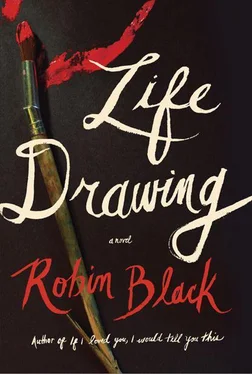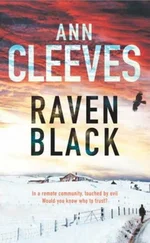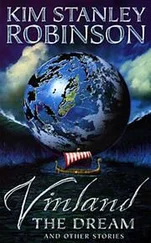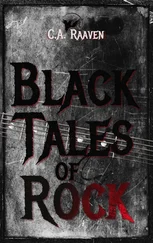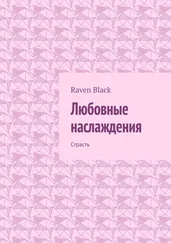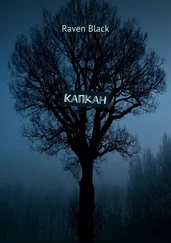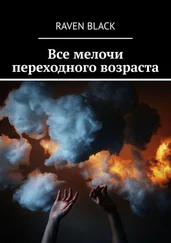“No … Though …” She looked over at us from the stove. Her face was damp and flushed, some combination of the boiling water’s steam and the several drinks we’d each had by then. “I should ask. I don’t know if either of you is religious?”
We assured her we were not. “Heathens, through and through,” Owen said.
“Well, that’s a bit of a relief. So I can be frank …”
The daughter, it turned out, had become a churchgoing Christian. There had been a boyfriend, sophomore year. “I never liked him, but I had no vote.” The relationship had ended, but the influence remained. “It’s terrible to complain because your child believes in God, because she goes to church. People deal with so much worse than that. And it hasn’t changed her politics. I mean, she hasn’t become some, well … I should probably ask about your politics too.”
“We’re exactly what you would guess,” I said. “Look at us.”
“Right. Well, I was going to say she hasn’t become a right-wing maniac. She just believes in, from my perspective, in a fairy tale. And it’s the first thing that’s ever come along that makes me feel we’re really different. But there are reasons, she’s had a lot to deal with … it makes a certain kind of …”
She let the sentence fade into the pantry as she withdrew a box of spaghetti. Owen and I exchanged a glance. Stitched together another fact; took note of another unknown.
And what did she learn about us that first night? Truly, a marriage is a paltry, skeletal thing when both members are present, talking to someone whom neither knows well. Whatever little leaks and blurts one might make if alone, are censored out. How many years had we been married? We’ve been together a quarter century . Any children? No . Where were you before the move out to the country? We were in Philadelphia. (We were in limbo. We were in hell.)
“We’d been teaching a lot,” Owen said. “Especially Gus, who was always in more demand for individual work, which can actually pay more than the adjunct stuff. And she’s a better teacher than I’ll ever be. But we were just making ends meet. Not quite living in a garret, but not far off. Then my aunt died and we had a little money and suddenly this opportunity came up.”
We didn’t talk much about art that night. In Owen’s presence Alison seemed embarrassed to have described herself as a painter. “I was just trying it out, saying it like that. Being brave. Really I’m a biology teacher who likes to paint.” And Owen and I observed our well-honed practice of silence on the subject of our work, of course, so beyond the brief mention of the daughter’s writing aspirations, the whole subject of creativity was set aside.
We did talk about the land around us. Alison had been for walks in the woods along both properties. She’d also walked the nearly two miles into town. We told her which stores we preferred — not that there was much choice.
“We don’t know how the pharmacy on the corner survives,” I said. “Patterson’s. I’ve actually done a painting of it, of that whole block. Last summer, I set up across the street for nearly two weeks, and I don’t think I saw ten customers go in. No one under eighty. I’m certain they still grind their own pills in the back. It’s the drugstore that time forgot.”
“Yes, and that the Rite-Aid over in Lowry replaced,” Owen said. “Just nobody informed the Pattersons.”
Nothing of much importance was said, but that seemed unrelated to what took place.
When I first began gardening, uninformed, I was shocked by the impact water could have on a thirsty plant. Of course I knew that plants needed water, but I didn’t know the miraculous impact a good soaking could have. I would notice a perennial, often sage — we grew a lot of sage, for its color and its hardiness — practically shriveled from thirst and heat, and I would get out the hose and then half an hour later would see it revived, its leaves unfurled, its very being seeming healed.
Owen and I had sex when we got home.
We got into bed at the same time, unusual for that summer. Most nights, I would head up with a book, often about World War I, and he would wander out to the barn to bang his head on work for a while more. Or I would wake in the wee hours and find him sitting downstairs, a drink in hand. But that night we climbed the stairs together, leaving the darkened house below.
At what moment had we each begun to feel the erotic charge? Walking home over the hill, a little drunk, we’d been laughing together. I had bumped against him with my hip, flirting, teasing, like a teen. Once in the house, switching off the downstairs lights, checking the leaky kitchen faucet, I felt a charge in the air. Unmistakable.
Nothing coy, nothing subtle, no nuzzling against one another in the bed, finding the comfort of familiar sex that’s half about pleasure, half about the start of falling asleep. I sat on the edge of our bed, still in my jeans, and spread my legs, unzipped the zipper, lay back, waited to feel his hands on my hips tugging the denim down, waited to feel his mouth on me. Didn’t wait long.
Sex. We had always had so many different kinds. Like different sorts of music. Sometimes sweet. Sometimes just edging on violent. No whips and chains, but teeth a little too sharp, the occasional slap. Rough play. Sometimes in public, half hoping to get caught. Owen would get me off under restaurant tables, in backs of taxis. Before we lived such secluded lives.
And then there was the other sex, the sex that’s like the decent enough music you listen to because the drive is so long and it’s the only radio station you can pick up.
There are points in every marriage, maybe in every long relationship, at which you have sex with your partner not because you are so drawn to that person, so turned on that you want to have sex, but because you want to have sex and that’s who you can have it with.
By the time we met Alison, we weren’t having sex frequently at all — not by our old standards. And what sex we had was mostly of the radio station, long-drive sort. One or the other of us would feel the need. The other would oblige. We could go weeks without.
But then that night, after our dinner with her, we tore the bed apart. Hungry. A little tough, a little rough. The sort of sex where you feel both slavish and mean, tuned in to the tension of desire, the gratitude for the moment, the anger at the power those moments hold. Hands, mouths everywhere. Skin tingling. Unbearable.
“God, I needed that,” Owen said, afterward.
“Me too,” I said. “God, I needed that.”
There are often two conversations going on in a marriage. The one that you’re having and the one you’re not. Sometimes you don’t even know when that second, silent one has begun.

One of the unanticipated impacts of our life in the country was that time had taken on a different feel. As Philadelphians, we had been teachers, shoppers, socializers, therapy attenders, bus catchers. And all of these things require an awareness of the clock and of the calendar. You have to know it’s Monday, and you have to know it’s noon, if you are going to get to your Monday 1 p.m. appointment. But even after only a month or two in the farmhouse, we started shedding that awareness. It was so rare for it to matter much whether it was Tuesday or Sunday. We stopped our Wednesday night candle lightings. The rhythm was wrong. We weren’t living in seven-day cycles anymore. Not in cycles at all. Even my body gave up its cycles, my reproductive potential stuttering to an early stop as if in acquiescence to its pointlessness. I still kept track of daylight, of course, noticing, as painters must, when each day dimmed, but that is a gradual, unpunctuated sort of way to measure time.
Читать дальше
